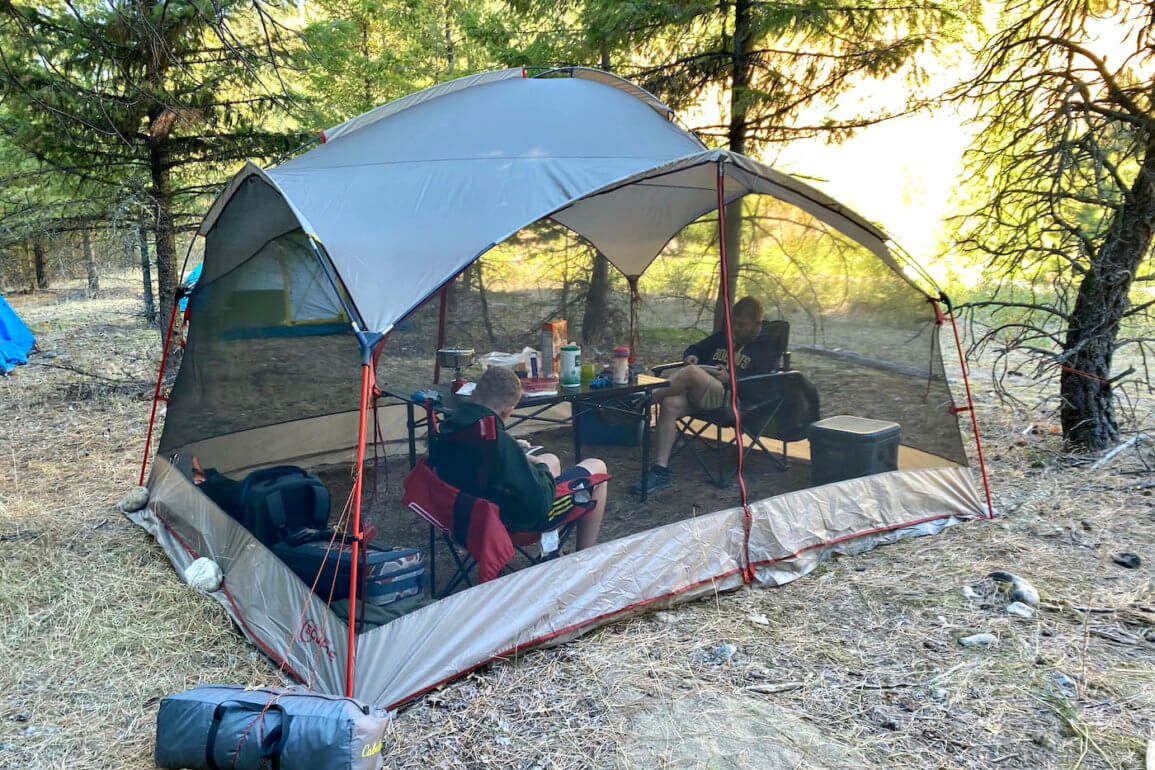Minimizing Bugs While Camping

Imagine you are camping and have just settled down by your campfire to eat a lovely meal. Suddenly you hear buzzing from all around you. It’s more bugs coming to pester you during your time outside. Don’t you wish there was a way to manage them better?
Here are some tips to help you manage bugs while camping:
- Choose the Right Campsite: When selecting a campsite, consider the proximity to water sources, dense vegetation, or stagnant areas that may attract more bugs. Choose a campsite that is more open and away from standing water to minimize bug populations.
- Use Insect Repellent: Apply insect repellent on exposed skin and clothing to deter mosquitoes, ticks, and other biting insects. Look for repellents that contain DEET, picaridin, or other EPA-approved ingredients. Follow the instructions on the product label for proper application and reapplication.
- Wear Protective Clothing: Wear long sleeves, long pants, and socks to minimize exposed skin and reduce the chance of bug bites. Tuck your pants into your socks to create a barrier and avoid gaps where bugs can crawl in. Consider wearing lightweight, breathable clothing to stay cool while protecting yourself.
- Set Up Bug Screens: Use a tent with built-in bug screens or set up a separate bug screen enclosure around your eating and lounging areas. This will create a physical barrier between you and the bugs while allowing for ventilation. Ensure that all openings, such as doors and windows, are properly screened to keep bugs out.
- Keep a Clean Campsite: Bugs are attracted to food and odors, so maintain a clean campsite. Store food properly in sealed containers or coolers to prevent attracting pests. Dispose of trash in designated containers and keep your cooking and eating areas clean. Avoid leaving food scraps or dirty dishes around your campsite.
- Consider Natural Repellents: Some natural repellents, such as citronella candles, essential oils (like lemon eucalyptus or lavender), or herbal bug sprays, may provide some relief from bugs. Keep in mind that their effectiveness can vary, and they may not be as long-lasting as chemical repellents.
- Avoid Peak Bug Activity Times: Be mindful of the times when bugs are most active. Mosquitoes, for example, are most active during dawn and dusk. If possible, plan your activities to avoid these peak bug activity times or take extra precautions during those periods.
- Eliminate Standing Water: Mosquitoes breed in standing water, so eliminate any sources of stagnant water near your campsite. This includes emptying and drying out containers, checking for puddles, and removing any items that can collect water.
- Use Bug Zappers or Traps: Consider bringing bug zappers or traps to help control flying insects. These devices attract bugs and either electrocute them or trap them, reducing their numbers around your campsite. Follow the manufacturer’s instructions for safe and effective use.
- Educate Yourself: Learn about the specific bugs common to the area where you’ll be camping. This knowledge can help you understand their behavior, preferred habitats, and appropriate methods for control.
Remember, it’s difficult to completely eliminate all bugs while camping, but these tips can help minimize their presence and make your camping experience more enjoyable. To put these tips to use, come stay at any of our Kiefer Campgrounds today!
Family owned and operated, Kiefer Campgrounds strive to offer you the best rates for a comfortable location with outstanding service, and spotless facilities. When you stay in one of our parks, you are no longer just a happy camper, but a part of our family! We are most certain you will enjoy your stay with us. Pick your favorite location and book your spot now before it’s too late! You’ll be happy you did!




